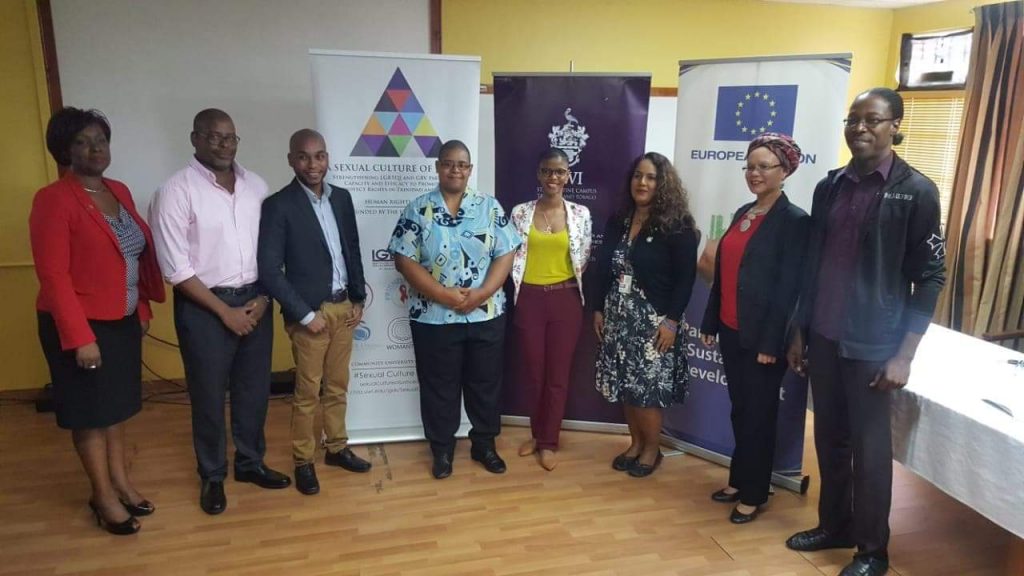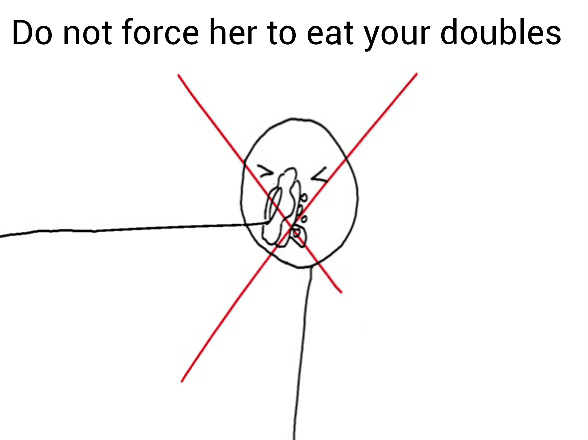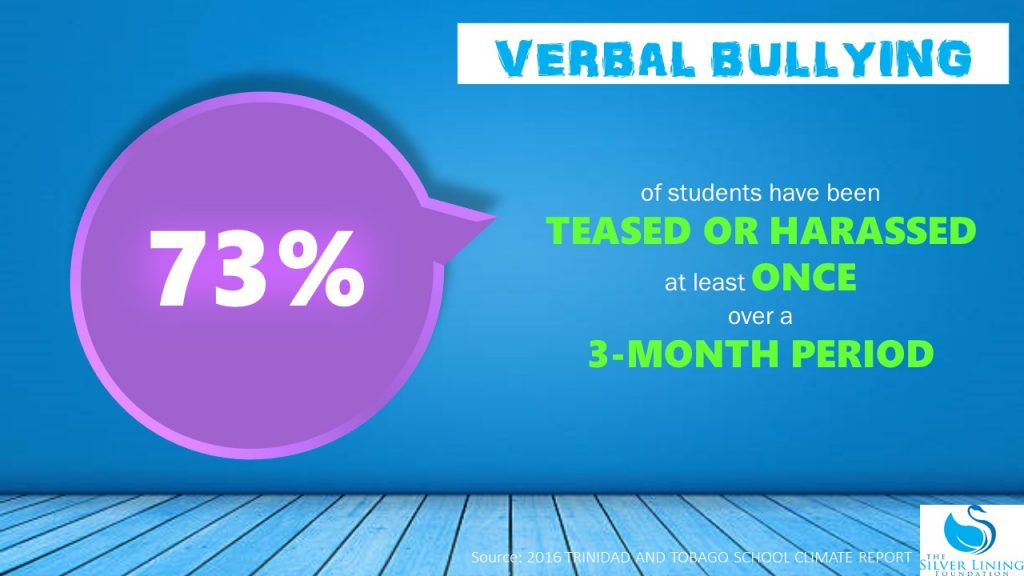A Sexual Culture of Justice

A Sexual Culture of Justice is a human rights project attempting to work on issues such as bullying, gender-based violence, institutional discrimination, mental illness and equal rights for the lesbian, gay, bisexual, intersex and queer (LGBTIQ) community.
This project, funded by the European Union for $1.3 million over a three-year period, was implemented by The University of the West Indies' (UWI) Institute for Gender and Development Studies (IGDS), in collaboration with Coalition Advocating for Inclusion of Sexual Orientation (Caiso), Friends for Life (FFL), I Am One, The Silver Lining Foundation (SLF), Womantra and The Women’s Caucus.
In commemoration of Human Rights Day, the organisers of the project showcased the educational and outreach work, done over the past year, at The UWI, St Augustine, on Monday.
The following is a synopsis of the work accomplished by the project over the past year:
Men speak up! Champions against gender-based violence was a workshop for 15 men between 16 and 60 years on gender-based violence that discussed issues such as masculinity, rape, violence and intimacy. Following the workshop the participants created series of videos for 16 Days of Activism (usually observed from November 25-December 16).
Kyle Hernandez reflected on his experience at the workshop and the ways men could become better allies.
"A lot of the times we talk about men needing to be held accountable and being responsible for their actions and toxic behaviour. We don’t really paint a picture of how accountability should feel like or be, this five-day, full-day course, it helped, it helped a lot," he said.
Hernandez said his experience was holistic as the workshop studied stickfighting, the impacts toxic masculinity and hyper masculinity have on men's behaviour, and a psychologist provided group therapy for self-reflection.
"I remember learning things about myself... If we could do this more, men would be able to be more empathetic and be not so fearful because I think people do things for three reasons. Insecurity, fear and love, and in that session we spoke about our fear, we spoke about our insecurity and we spoke about how better to channel love."
At the end of the sessions, the group produced several videos such as Consent Doubles questioning if you force your friend to eat doubles? Would you shove the barra and channa down their throat if they said no? This metaphor was used to explain consent and rape.

Safer schools: managing diverse classrooms was a teacher training programme led by SLF and IGDS.
In 2016 the SLF surveyed 651 students from 20 secondary schools to determine the prevalence of violence and bullying in the schools. It looked at bullying trends such as gender-based violence, sexist language, sexual assault and the experiences of LGBTIQ students.

Out of the sample size, male students experienced a higher rate of verbal and physical bullying while female students were more likely to experience sexual and cyber-bullying. Out of the 651 students 100 reported either being molested or were uncertain of their sexual experience, and 51 were either raped or were uncertain. LGBTIQ students had higher rates of bullying than non-LGBT students and heterosexual students were more likely to discuss their bullying experience with someone, while LGBT students were less likely to discuss their bullying experience with someone other than another LGBTIQ student.

Kinno Jarvis, a teacher from Pleasantville Secondary School, attended the two-day teacher training workshop in September. Dealing with bullying constantly in his classroom, Jarvis said he was pleased to attend a workshop that dealt specifically with gender-based issues including sexuality.
"The bullying I used to see, I know now, was gender-based. I was thinking this is a good thing to attend and I was wondering, I hope they would be dealing with gender and sexuality and LGBTIQ issues as well... As teachers we have to weed it out from an early age in the school system," Jarvis said.

The second cycle of Safer schools will take place in January 2019.
Stronger Families was a ten-session group therapy conducted by psychologist Dr Katija Khan for families with LGBTIQ members. The group sessions provided a non-judgmental space where people could openly discuss their concerns, fears and anxieties about having an LGBTIQ person in their family.
"Family rejection is a critical factor of LGBTI persons. It is associated with an eight-time increase in suicide, six-fold increase in depression, three-fold increase in illegal drugs and in unprotected sex. When there is family support and family acceptance, it erases that," Khan said.
The group discussed coming out experiences, educated the families about sexual orientation, discussed stigmas and myths attached to the LGBTIQ community and introduced science about sexual orientation. Parents expressed their fears about talking to their LGBTIQ children and how to deal with the discrimination their children would face.
Khan worked with nine families, three of which had underaged LGBTIQ family members.
Lifestories of LGBTQI+ Persons in TT is a research project conducted by Luke Sinnette of Friends for Life (FFL) which documented the lives of 18 LGBTIQ people. Lifestories recorded their experience discussing topics such as gender-based violence and rejection from parents, church and self.
Describing it as a cathartic experience, Sinnette said, "Homophobia is trauma.
"When you're growing up as a young LGBT person, your parents, your guardians and your older siblings, they are the persons who embrace you, but then also, they are the same person who tell you don't act like that. So you begin to experience complex trauma," Sinnette said.
All 18 of the life stories were recorded and analysis is in progress. Sinnette and his team will present their findings in 2019.
Add All Three is a campaign to have sexual orientation, age and health status added to the Equal Opportunities Act. Steve Theodore from Amalgamated Workers Union called for the Equal Opportunities Commission to be empowered to protect all workers under the act.
"The Labour Ministry states there are over 600,000 workers in the country approximately nine to 12 per cent of them are members of unions. That's over 60,000 persons are members of the LGBT community in this country. If we speak of LGBTI issues of discrimination and not consider them labour issues, then we are not serving our members effectively as we should," Theodore said.
The work of A Sexual Culture of Justice will continue in 2019.

Comments
"A Sexual Culture of Justice"